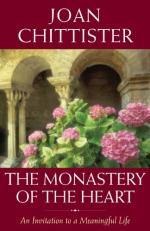|
This section contains 2,226 words (approx. 8 pages at 300 words per page) |

|
A monk's foremost duty was to pray in accordance with the sacred routine of his order as practiced in his particular monastery. Monks engaged in communal and private prayers (for their own spirituality and for the souls of humankind) and their personal reading of the Bible and other works of spiritual value. The well-known prohibitions on talking at certain times of the day were intended to encourage contemplation and inner dialogue.
Benedict said that the monastery was a house that should be always "watchinge unto God." In his Rule, he set a schedule (Horarium) for his monks that included eight prayer services each day, called the Divine Office. Benedict referred to the Divine Office as Opus Dei, meaning "God's work," and he bid his followers, "Let nothing take precedence over the work of God." Bernard of...
|
This section contains 2,226 words (approx. 8 pages at 300 words per page) |

|




